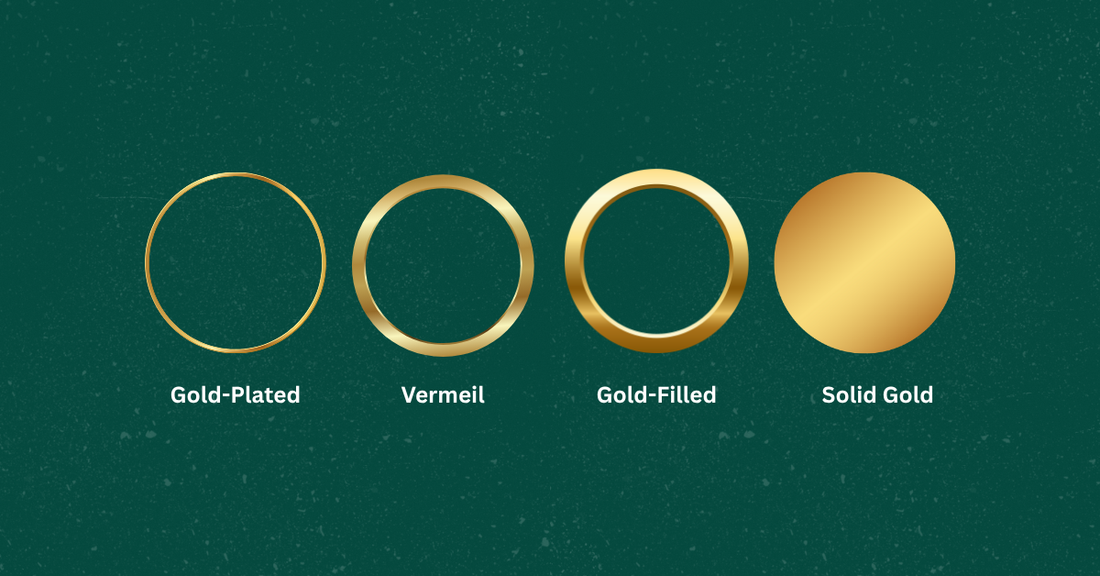
What’s the Difference Between Gold-Plated, Gold-Filled, and Solid Gold?
Share
Gold Jewelry 101: What’s the Real Difference?
If you’ve ever shopped for gold jewelry, you’ve probably seen terms like gold-plated, gold-filled, and solid gold—but what do they actually mean? And how do you know which one is right for you?
Let’s break it down in simple terms so you can shop smarter and know exactly what you’re wearing.
🟡 1. Solid Gold – The Real Deal (and the Most Expensive)
Solid gold jewelry is made entirely of gold. It comes in different karats like 14K, 18K, or 24K, depending on the purity.
Why it’s great:
-
Never tarnishes
-
Can last a lifetime (or several!)
-
Holds its value
Keep in mind:
It’s the most expensive option — but also the most durable and investment-worthy.
🧡 2. Gold-Filled – A High-Quality Middle Ground
Gold-filled jewelry has a thick layer of real gold (at least 5% of the total weight) pressure-bonded to a base metal like brass. It’s not the same as gold-plated—it’s much more durable.
Why it’s great:
-
Real gold on the outside
-
Tarnish-resistant and long-lasting
-
A more affordable alternative to solid gold
Perfect for you if:
You want lasting quality without the price tag of solid gold.
💛 3. Gold-Plated – Affordable & Trend-Friendly
Gold-plated jewelry has a very thin layer of gold (microns thin) applied over a base metal like brass or stainless steel using electroplating.
Why it’s great:
-
Super affordable
-
Great for trying trends or bold pieces
-
Looks like gold (for less)
Keep in mind:
Because the gold layer is thin, it may fade or tarnish over time—especially with daily wear, sweat, or water. But with the right care, it can last longer than you think!
✨ So, Which One Should You Choose?
| Solid Gold | Gold-Filled | Gold-Plated | |
|---|---|---|---|
| 💰 Cost | $$$ | $$ | $ |
| ⏳ Durability | Lifetime | Years | Months (with care) |
| 🌊 Water Resistance | Excellent | Good | Low |
| 🧼 Maintenance | Low | Low | High |
